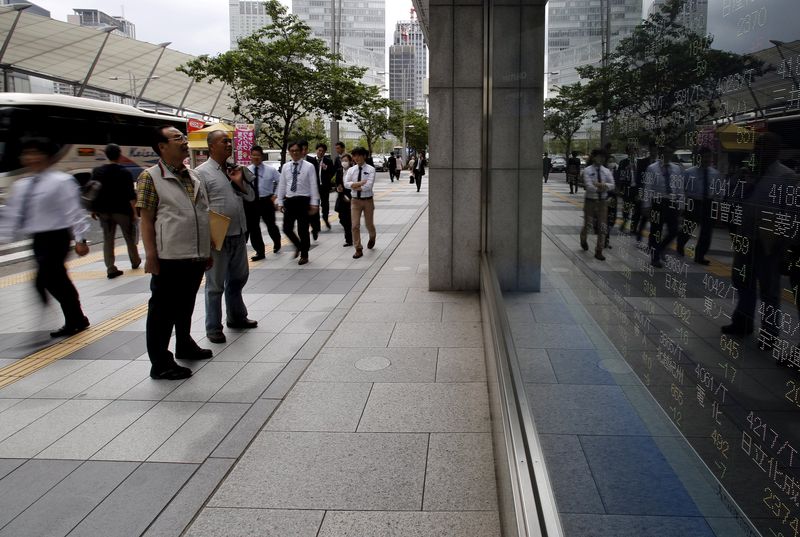Investing.com — Most major Asian stocks rose Thursday following an overnight rally in technology stocks on Wall Street as U.S. inflation data reinforced expectations for a Federal Reserve rate cut next week.
US data showed on Wednesday that inflation rose at the fastest pace in seven months in November, but was largely in line with expectations. This led markets to price a 98% chance of a 25 basis point rate cut next week, up from 81% last week, according to .
US stock indexes closed higher overnight, reaching an all-time high above 20,000 points. The gains were largely driven by technology stocks.
Wall Street futures fell slightly in Asian trading.
Chinese stocks rise, CEWC waited for stimulus signals
The Chinese index was 0.4% higher, while the index gained 0.6%. Hong Kong’s index rose 1.3%.
The focus was on the Chinese Central Economic Work Conference (CEWC), a two-day meeting that would conclude later on Thursday. Markets are hoping to get details on new stimulus measures at the meeting, after China’s Politburo gave its most dovish signals yet on plans to support economic growth.
Elsewhere, stock markets were largely mixed, with the Philippine index edging 0.3% lower and Thailand’s index rising 0.4%.
India showed a slight decline at the opening, while Indonesia’s fell 0.4%.
Japanese and South Korean stocks buoyed by tech gains
Japan rose 1.6% and climbed 1.1%, with gains in heavyweight technology stocks. Sony Corp (TYO:) rose 2.7%, while Panasonic (OTC:) Corp (TYO:) rose 1.5%.
The South Korean index rose 0.4%, while major technology stocks were on the rise. However, the ongoing political unrest in the country still kept investors on edge.
South Korean police attempted to raid President Yoon Suk Yeol’s office on Wednesday after he was subjected to a criminal investigation into his attempt to declare martial law in the country, according to media reports.
Australian shares fall after jobs data increases interest rate uncertainty
Australia’s fell 0.3% on Thursday after data showed the country’s economy rose more than expected in November as the labor market remained strong but fell unexpectedly.
The data led market participants to further tone down bets that the Reserve Bank of Australia would cut rates in the near term. The broad consensus is that the RBA will start cutting rates in the second quarter of 2025.
The RBA had left rates unchanged on Tuesday, citing tight labor market conditions and persistent underlying inflation in the province, although it noted inflation was easing in line with expectations.


